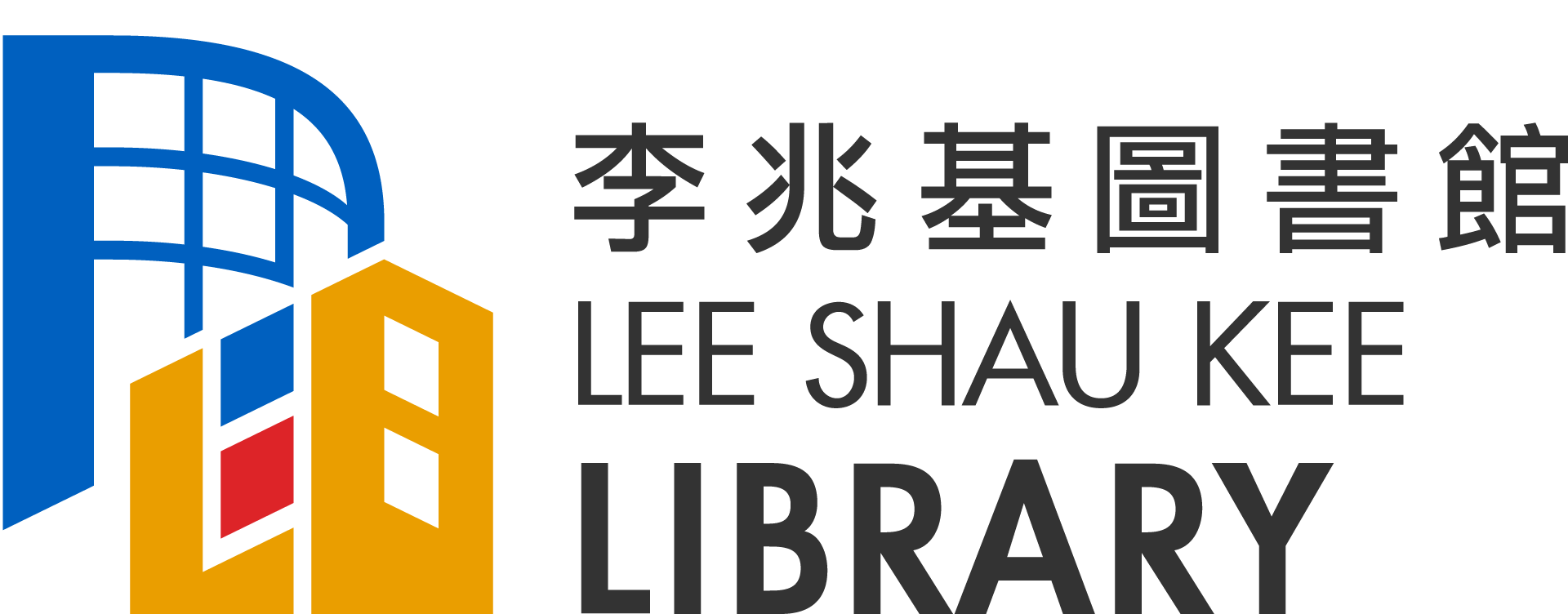
The United Nations set 17 Sustainable Development Goals (SDGs) in the 2030 Agenda for Sustainable Development. HKUST researchers can contribute a lot to these goals. Can you guess which SDGs our research relates to the most?
The UN SDGs
The 17 SDGs are high-level goals that are meant to be an urgent call for action. These global challenges are heavily interlinked; they require global effort and partnership to tackle.
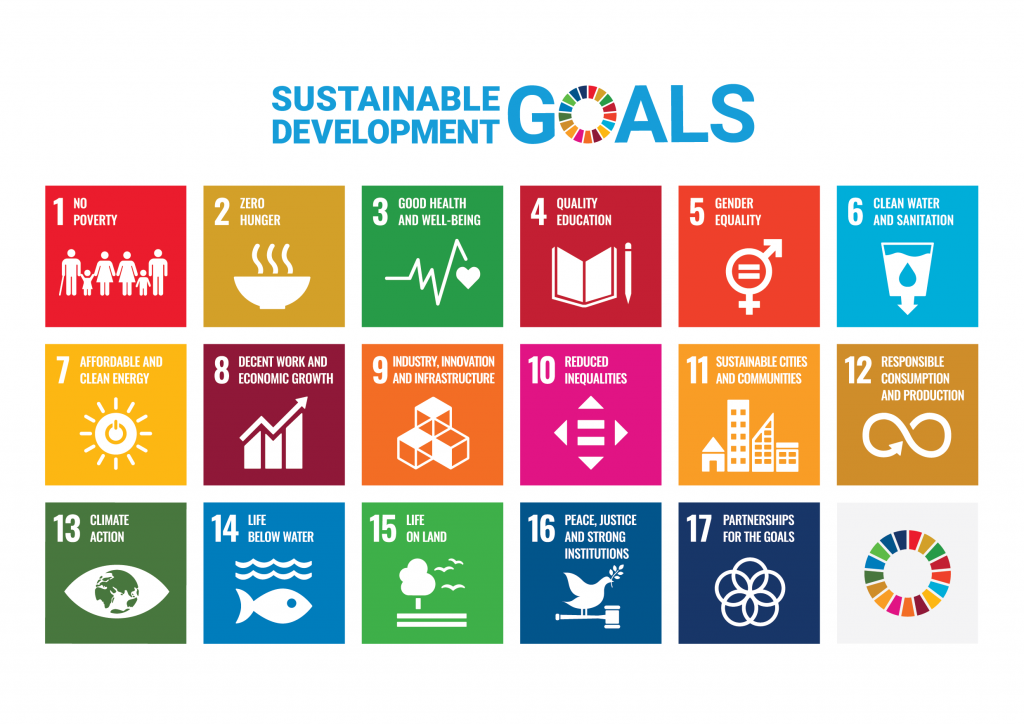
Mapping Research Publications to SDGs in Scopus
Research in all disciplines can contribute to SDGs in different ways. Researchers and institutions over the world work hard towards these goals, and also try hard to demonstrate how their effort helps to reach SDGs. Currently, when researchers publish their works in journals, there is no practice to tag which SDGs their research may support. However, in the database Scopus, there are now pre-defined sets of keywords that attempt to map research output to SDGs 1 to 16.
We used Scopus to capture how many HKUST-affiliated papers matched these SDG keywords. This post highlights the results.
Number of HKUST Publications
*The searches were conducted on September 7, 2021
| SDGs | No. of HKUST Publications from 2015 onwards |
|---|---|
| 01 No Poverty | 11 |
| 02 Zero Hunger | 34 |
| 03 Good Health and Well-being | 1357 |
| 04 Quality Education | 11 |
| 05 Gender equality | 19 |
| 06 Clean water and sanitation | 93 |
| 07 Affordable and clean energy | 1006 |
| 08 Decent work and economic growth | 108 |
| 09 Industry, innovation, and infrastructure | 112 |
| 10 Reduced inequalities | 35 |
| 11 Sustainable cities and communities | 371 |
| 12 Responsible consumption and production | 152 |
| 13 Climate action | 216 |
| 14 Life below water | 207 |
| 15 Life on land | 80 |
| 16 Peace, justice, and strong institution | 68 |
| Total | 3880 |
Most of our papers are in SDG 03 Good Health and Well-being and SDG 07 Affordable and clean energy. The distribution is clearer when we put the same data into Figure 1, showing that three SDGs 03, 07 and 11 being the biggest portions:
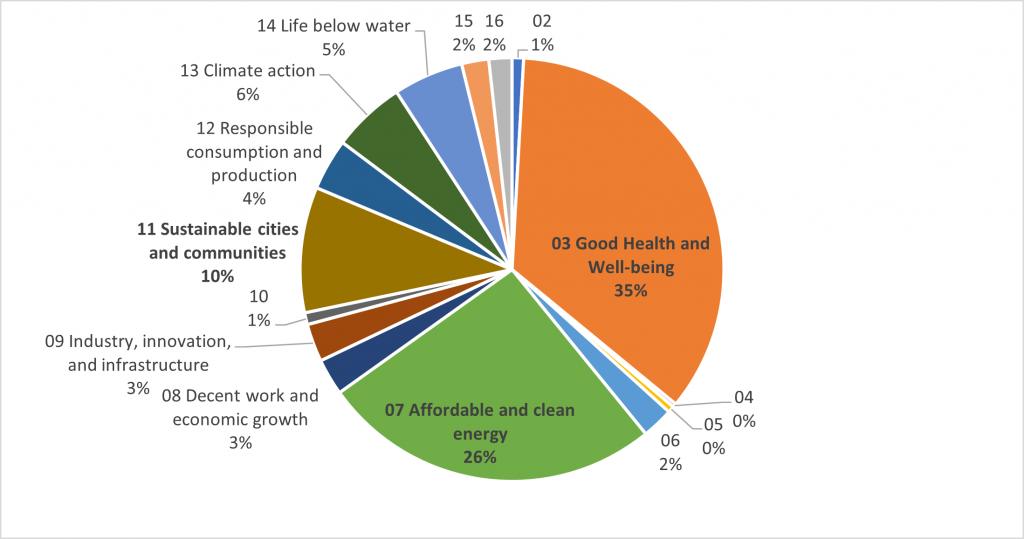
HKUST Impact Areas Relative to the Global Publishing Profile
While the major portions of HKUST research output fall into the two areas: health science and energy research, it might be because these areas represent a high proportion of global research. When we compare the distribution of HKUST papers and the global picture (Figure 2), in fact we have relatively higher number of publications in these eight SDGs:

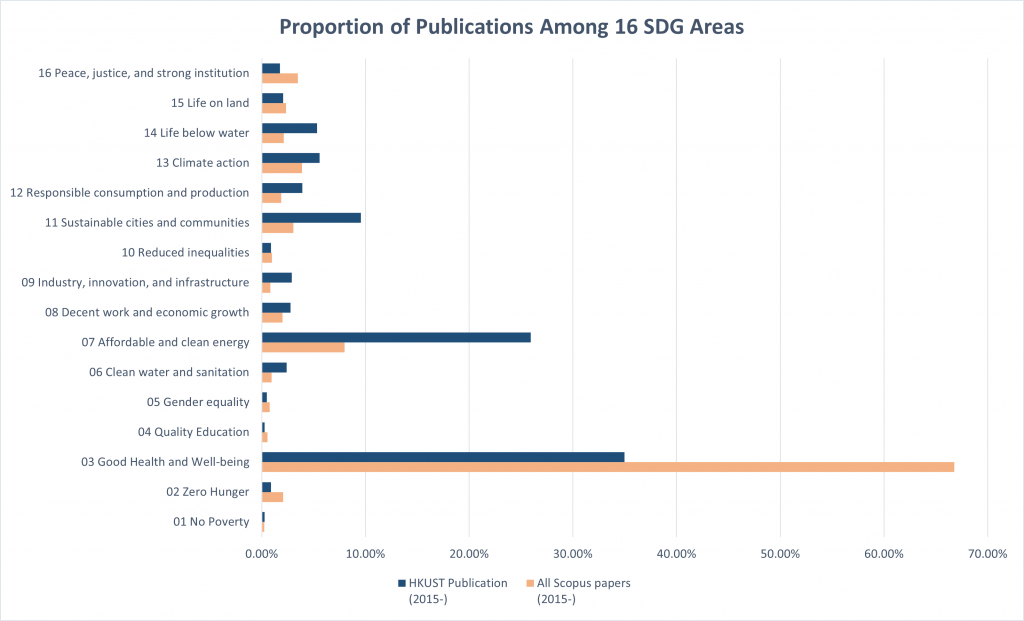
Other Ways to Connect Research Output to SDGs
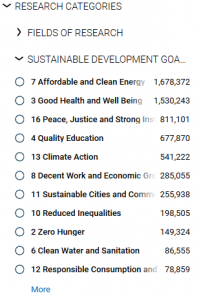
Scopus uses a keywords mapping approach to identify papers related to SDGs. It is a simple idea, yet it is debatable whether it is effective or meaningful. Apart from Scopus, Dimensions also set up SDG-related topic searches, you can find them among the filters options (Figure 3).
You can find out more about these methods and research around SDGs in general from these reports and projects:
- Contextualizing Sustainable Development Research by Digital Science
- The Power of Data to Advance the SDGs by Elsevier
- SDG relevancy mapping, a project by SpringerNature and universities in the Netherlands
- Consensus and dissensus in ‘mappings’ of science for Sustainable Development Goals (SDGs), a study at Leiden University
The Scopus searches reported in this post were conducted by Lester Chan from the Library's Research Support Services team. If you are interested about the data such as publication details, productive authors among the results, citation counts, etc., you can contact Lester.

